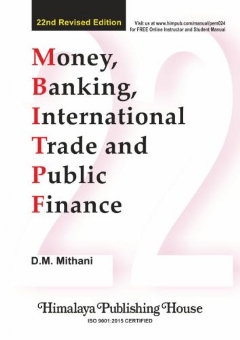Banking is a long-established activity in a financial system of a country. The provision of efficient loan and deposit facilities by banks, is an essential ingredient for the development of people in a society. This is the reason why all banks are managed prudently. Asset-liability mismatch and liquidity risk management are the two core principles of banking. Accepting deposits for shorter period and advancing for long period creates a mismatch. This mismatch gives rise to liquidity risk. Banks, therefore, take measures to ensure liquidity by maintaining cash reserves as prescribed by statutes and take temporary loans from RBI (The Central Bank of our Country).
This title “BANKING OPERATIONS” provides an overview of the concept of bank and banking and its operations. The book covers the banking aspects such as meaning, importance and types of banks, function of banks, RBI’s functions and role in controlling commercial banks, different types of bank accounts, Cheque as a negotiable instrument and it’s utility, loans and advances and innovation in banking operations.
Many Universities offering B.Com Course in Karnataka have prescribed “Banking Operations” as an open elective subject. This title is produced as per the syllabus prescribed under New Education Policy. Basic aspects of banking are analysed in a very simple and understandable language to see that students enjoy and internalise the various aspects of banking operations. Constructive feedback is appreciated.
Contents –
Module 1: Introduction to Banking
1. Introduction to Banking
Module 2: Different Types of Accounts
2. Different Types of Accounts
3. Cheque
4. Endorsement
Module 3: Loans and Advancesv
5. Loans and Advancesv
Module 4: Innovations in Banking Operations
6. Innovations in Banking Operations







